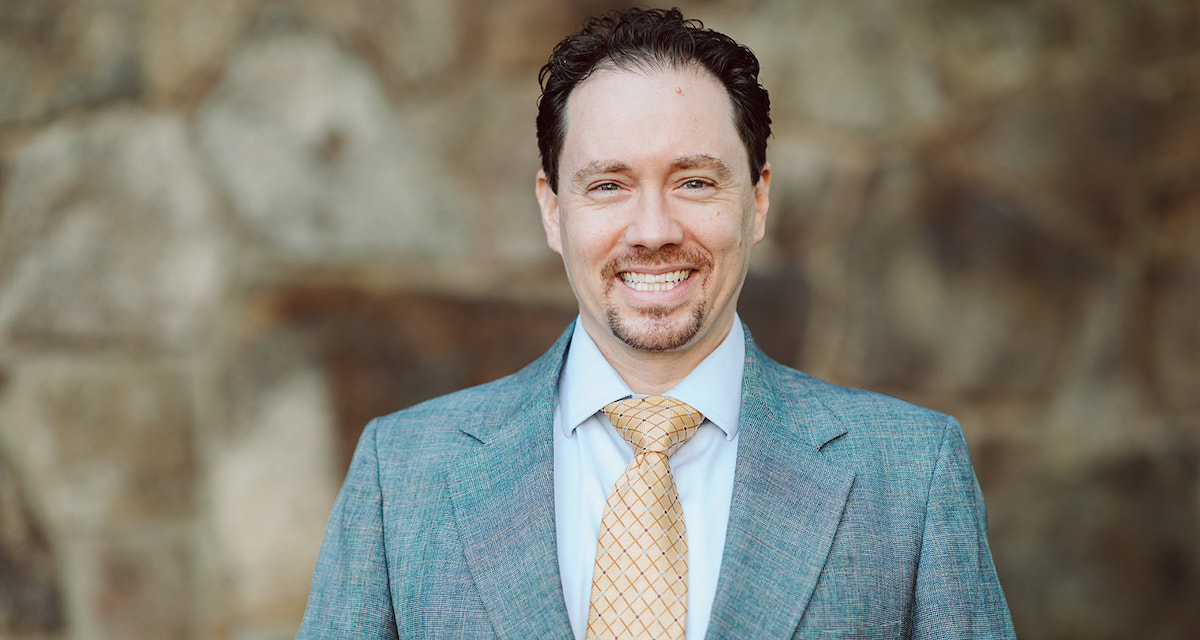Wielding the Weapon of Rhetoric for Good
On a trip to the car dealership you’ll encounter a shrewd salesperson with an arsenal of persuasive tactics. While browsing the options you might hear a revealing question, a targeted observation or an offer you can’t refuse. Behind the get-to-know-you questions and the classic “Ben Franklin close” (“Why not buy this car?”), says Assistant Teaching Professor of English Luke Redington, is the art of rhetoric.
But the English Language and Literature Department’s newest faculty member, who earned a Ph.D. in Rhetoric and Composition from Purdue University, isn’t interested in using his expertise to trick people into irresponsible financial decisions. Instead, Redington is drawn to the ethical dimensions of everyday situations: A politician sharing his platform or a scientist explaining the results of her research.
“Rhetoric can be used to make other people look foolish, it can be used to make people look powerful, and it can be used to make a weaker argument look stronger,” says Redington. To advocate a very different set of goals for rhetoric, he is putting faith at the forefront of his instruction at Gordon.
“The world doesn’t know it, but it is actually very hungry for the use of rhetoric to come under the lordship of Christ,” he says. “When there are no caveats, you can use this powerful thing for your own selfish ambition. There really is a world of difference between that and people who will say ‘I’m going to put others’ needs first.’”
With a theological lens and practical approach to his field, Redington arrives at Gordon this fall to direct Gordon’s Writing Center and to be a part of the College’s new minor in professional writing. He also brings experience from his most recent role as an assistant professor of technical communication at the University of Maine. As one of the instructors of Gordon’s new minor, Redington will impart his priority for ethical messaging on students seeking to apply their writing skills to fields like business and medicine.
As the Department of English, Languages and Linguistics undertakes the responsibilities of the Writing Center and minor in professional writing, department chair Chad Stutz, Associate Professor of English, says, “Luke’s excellent interpersonal skills and extensive experience teaching writing to students in disciplines other than English make him the ideal person to direct our campus Writing Center and to assist us in launching our new professional writing minor this fall. He is an energetic and gifted teacher with an evident passion for helping students to see the connections between their Christian faith and the construction of thoughtful arguments.”
Redington arrives at Gordon during a time when rhetoric pervades culture and arguments abound—press conferences take over TV networks, headlines clash and reporters make bold declarations as the world daily awaits news of the coronavirus and the United States anticipates an election. Amid those often-confusing and fear-fueled conversations, Redington begins his mission to help Gordon students use writing to navigate a world filled with controversy and complexity. “When we’re afraid, we argue ourselves into letting fear rule,” he says. “But if we invite Christ into that argument, then fear has a harder time grabbing the microphone.”
 The Bell
The Bell